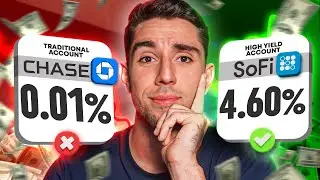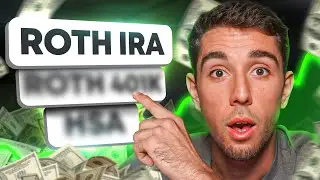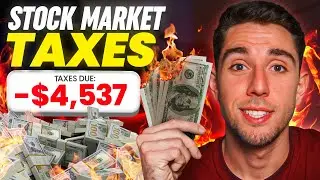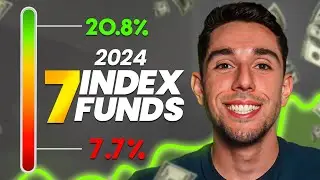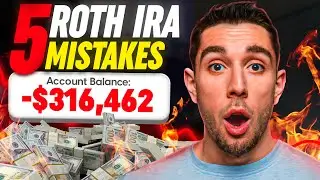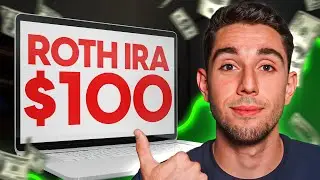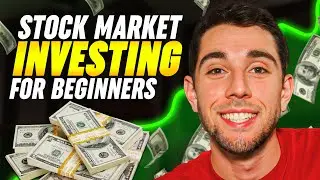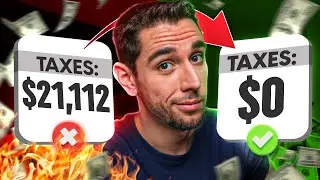Stock Market Investing For Beginners | Step By Step Tutorial
This video covers an Ultimate Guide to Stock Market Investing For Beginners. By watching this, you'll understand some of the best ways to approach stock market investing even if you are an absolute beginner - Enjoy!
Stock Market Investing Powerpoint: https://dannysully.link/Investing101
Top Financial Products:
🏦 High Yield Savings Accounts: https://dannysully.link/Savings
📈 Investing Platforms: https://dannysully.link/Investing
🔒 Certificate Of Deposits (CDs): https://dannysully.link/CDs
Resources:
📚 Free Learning Guides: https://dannysully.link/FreeGuides
🗞️ Newsletter: https://dannysully.link/Newsletter
🔑 Patreon (My Portfolio & Exclusive Content) - / dannysully
🎥 Relevant YouTube Videos 🎥
• Stock Market Investing
• Financial Education
• Mutual Funds vs Index Funds vs ETFs |...
• Roth IRA Investing For Beginners | Th...
• Top 10 Investing Mistakes You NEED TO...
• How To Build Wealth Investing In ETFs...
• Stock Market Order Types For Beginner...
• How To Start A Dividend Portfolio Wit...
• Where To Open A Roth IRA | 3 BEST Rot...
⏰ Timestamps ⏰
00:00 Intro To Investing
10:03 How To Start
15:35 What To Buy
18:53 How To Buy
20:25 Portfolio Allocation
24:15 Market Glossary
What is investing and why is it important?
Investing means using your money to buy assets like stocks, bonds, or real estate to grow your wealth over time. It's crucial because it helps your money earn more, potentially allowing you to retire successfully and beat inflation.
What are individual stocks and how do they differ from ETFs and mutual funds?
Individual stocks represent ownership in a single company, making them more volatile. ETFs and mutual funds bundle multiple stocks, providing diversification and often lower risk. ETFs can be traded like stocks, while mutual funds usually settle at the end of the market day.
What’s the difference between an index fund, mutual fund, and ETF?
Index Fund: Tracks a specific market index.
Mutual Fund: Tracks many stocks in one, which is active or passively managed. Less tax-efficient.
ETF: Trades on an exchange like a stock, can be actively or passively managed. More tax-efficient.
How do you trade them?
Mutual Funds: Bought/sold at the end of the market day.
ETFs: Traded like stocks, offering flexibility.
What is the difference between actively and passively managed funds?
Actively managed funds have a manager who picks stocks, which can be more expensive due to higher fees. Passively managed funds, like index funds, track a specific index, offering lower costs and often better long-term performance. My motto... index funds!
🔔 Don't forget to subscribe with notifications on and hit that like button!
Disclaimer: Certain links on this website lead to products or services that may earn Danny Sully an affiliate commission or referral bonus. As a member of an affiliate sales network, Danny Sully is compensated for directing traffic to partner websites, which may affect the placement or visibility of some products on this site. The information provided in this video is accurate as of its posting date, though some of the offers mentioned may no longer be active.
This content is for entertainment only and does not constitute legal, tax, or financial advice. It is for general informational purposes. The presenter is not a licensed professional. Viewers should consult their attorney, accountant, or financial advisor for advice on specific legal, tax, or financial issues.












